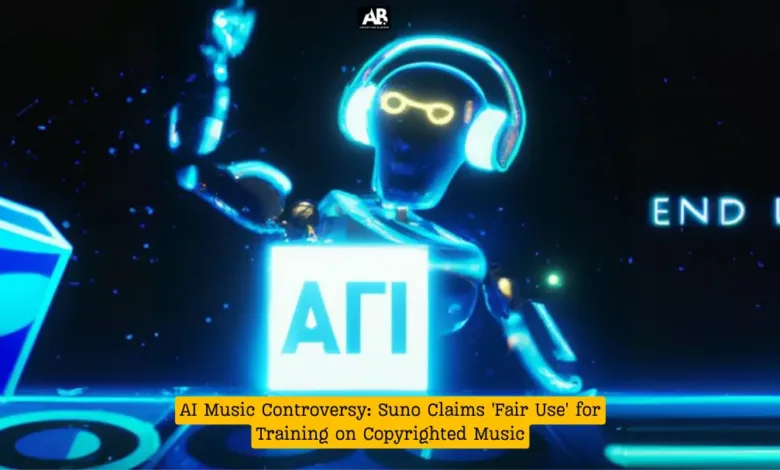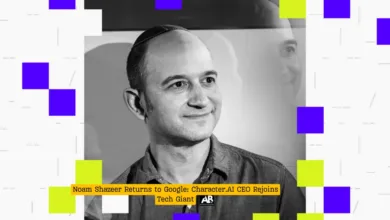AI Music Controversy: Suno Claims ‘Fair Use’ for Training on Copyrighted Music
The intersection of artificial intelligence (AI) and the music industry has sparked a heated debate, with Suno—an AI music startup—asserting its right to use copyrighted music under the doctrine of 'fair use'. This controversy highlights the evolving landscape of AI technology and its legal implications, especially concerning intellectual property rights. Here’s a comprehensive look at the issue and its broader implications.

The Fair Use Defense: Suno’s Stance
Suno, a leading player in the AI music sector, is at the center of a legal dispute with the Recording Industry Association of America (RIAA). The crux of the controversy is Suno’s use of copyrighted music to train its AI models, which the company argues falls under fair use.
1. Understanding Fair Use
The fair use doctrine allows limited use of copyrighted material without permission from the copyright holder for purposes such as criticism, commentary, news reporting, teaching, scholarship, or research. Suno contends that its use of copyrighted music for training AI models qualifies as fair use because it contributes to technological advancements and fosters innovation.
2. Suno’s Argument
Suno maintains that the use of copyrighted music is essential for training its AI systems, which aim to analyze and generate music. The company argues that its approach does not infringe upon the original work’s market value but rather transforms it to create new, unique outputs. By leveraging existing music, Suno asserts it is enhancing the capabilities of its AI and promoting creativity in the music industry.
The RIAA’s Position
The RIAA, representing major record labels and music rights holders, has expressed strong objections to Suno’s practices. The organization argues that using copyrighted music without proper licensing undermines the rights of artists and creators, potentially resulting in significant financial losses for the music industry.
1. Copyright Infringement Concerns
The RIAA’s lawsuit against Suno is rooted in concerns over copyright infringement. The organization claims that Suno’s use of copyrighted music without authorization violates the exclusive rights of copyright holders, including the right to reproduce, distribute, and perform their works.
2. Financial Impact on Artists
The RIAA also emphasizes the potential financial impact on artists, who may suffer from diminished revenue if their music is used extensively in AI training without appropriate compensation. The organization advocates for fair compensation mechanisms to ensure that artists are adequately rewarded for their creative contributions.
Broader Implications for the Music and AI Industries
The outcome of this legal dispute could have far-reaching implications for both the music and AI industries. The case raises several critical questions about the future of AI and copyright law.
1. Defining the Boundaries of Fair Use
One of the key issues in this case is the interpretation and application of fair use in the context of AI. The outcome will help define the boundaries of what constitutes fair use when training AI models on copyrighted material. This precedent could influence future legal disputes involving AI technologies and intellectual property.
2. Impact on AI Innovation
The resolution of this case will also affect the development and deployment of AI technologies in creative fields. A ruling in favor of the RIAA could impose stricter limitations on the use of copyrighted material for AI training, potentially stifling innovation and hindering the progress of AI-driven creative tools.
3. Licensing and Compensation Models
The case underscores the need for updated licensing and compensation models that reflect the realities of modern technology. As AI continues to evolve, it will be crucial to establish fair and equitable frameworks that balance the interests of copyright holders, technology developers, and users.
Legal Precedents and Future Outlook
The Suno-RIAA dispute is not the first instance of legal challenges involving AI and intellectual property. Similar cases have explored the intersection of AI technologies with copyright law, contributing to an evolving legal landscape.
1. Previous Legal Battles
Previous legal battles involving AI and copyright have addressed issues such as the use of AI-generated content and the rights of creators. These cases have helped shape the legal framework for AI technologies, providing valuable insights into how courts may approach similar disputes in the future.
2. Anticipated Legal Developments
As the legal system continues to grapple with the complexities of AI and intellectual property, we can expect ongoing debates and potential legislative changes. The outcome of the Suno case may set important precedents and influence future legal standards for AI technologies and creative works.





